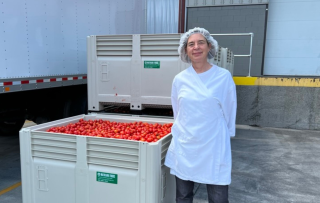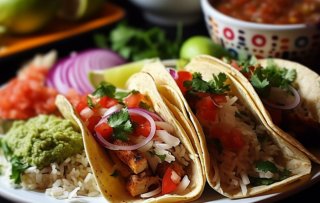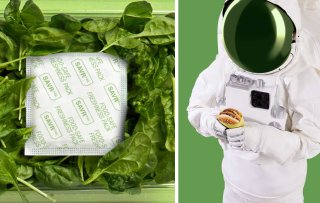In its annual Trend and Transition report, Food Inspiration describes seven themes that impact the world of food in the foreseeable future. These transitions focus on a net-neutral industry and a climate neutral food system. They are globally relevant, but also have a local impact component.
7 transition themes that impact the world of food
-
Protein shift
-
Sustainable sourcing
-
Plastic reduction
-
Labour market & HRM
-
Sustainable transportation (last mile)
-
Mitigating food waste
-
Artificial Intelligence
Transition theme 1: Protein transition
The shift from a diet centered around animal proteins to one with predominantly plant-based proteins is referred to as the protein transition. Many food service companies are actively engaged in this transition, both publicly and more quietly. Caterers are collectively striving to increase their percentage of plant-based proteins, while restaurants are increasingly offering more vegetarian dishes on their menus. Some food companies are even moving towards an entirely plant-based menu.
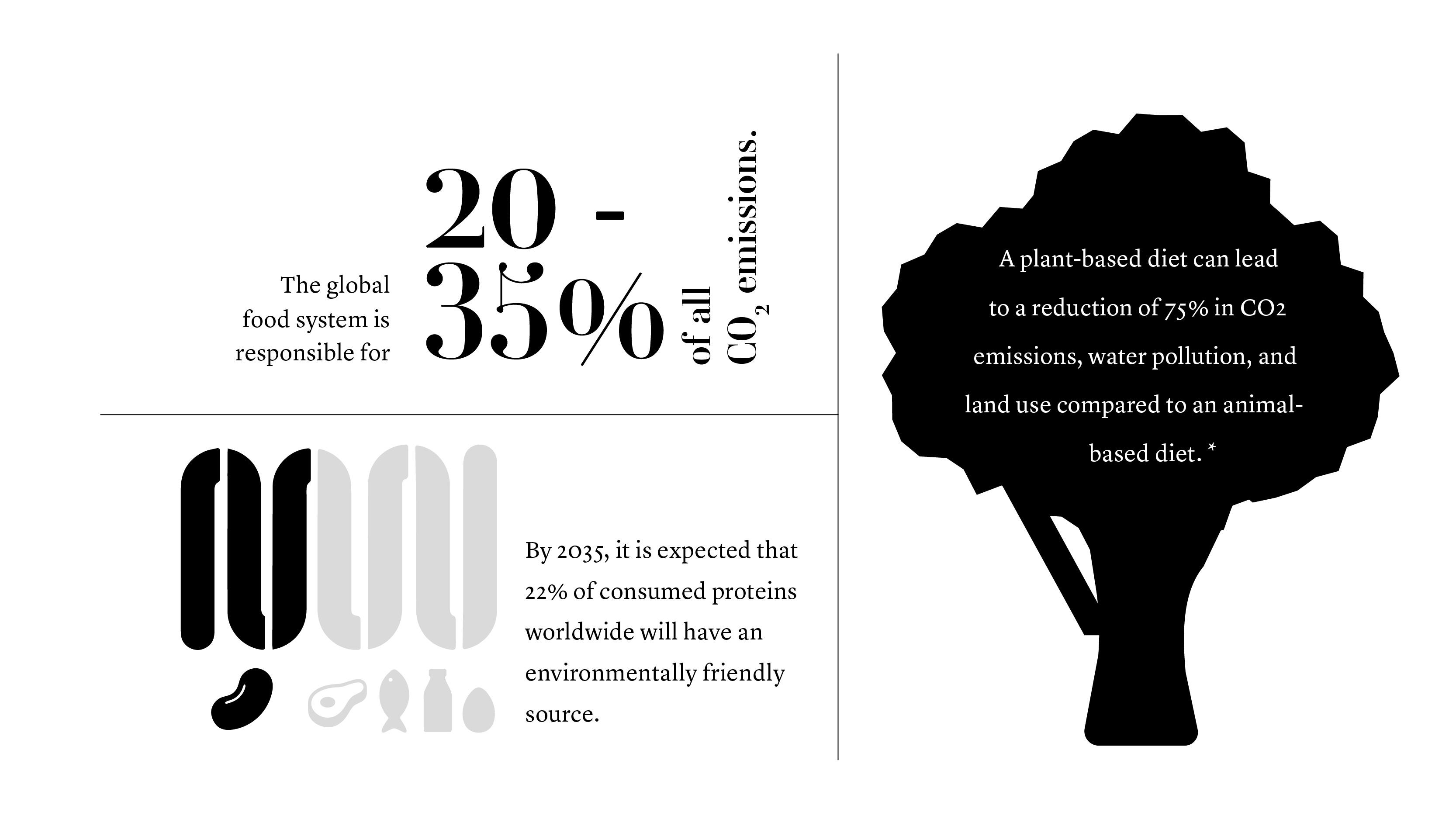
Transition theme 2: Plastic reduction
Plastic was once an incredible solution for food packaging. However, the infinite lifespan of plastic is now having a negative effect on the planet; plastic waste is surfacing everywhere and is hardly decomposed by nature. As a result, numerous measures are being taken to reduce single-use plastics and improve their recyclability. In addition, there are increasing regulations aimed at reducing plastic.
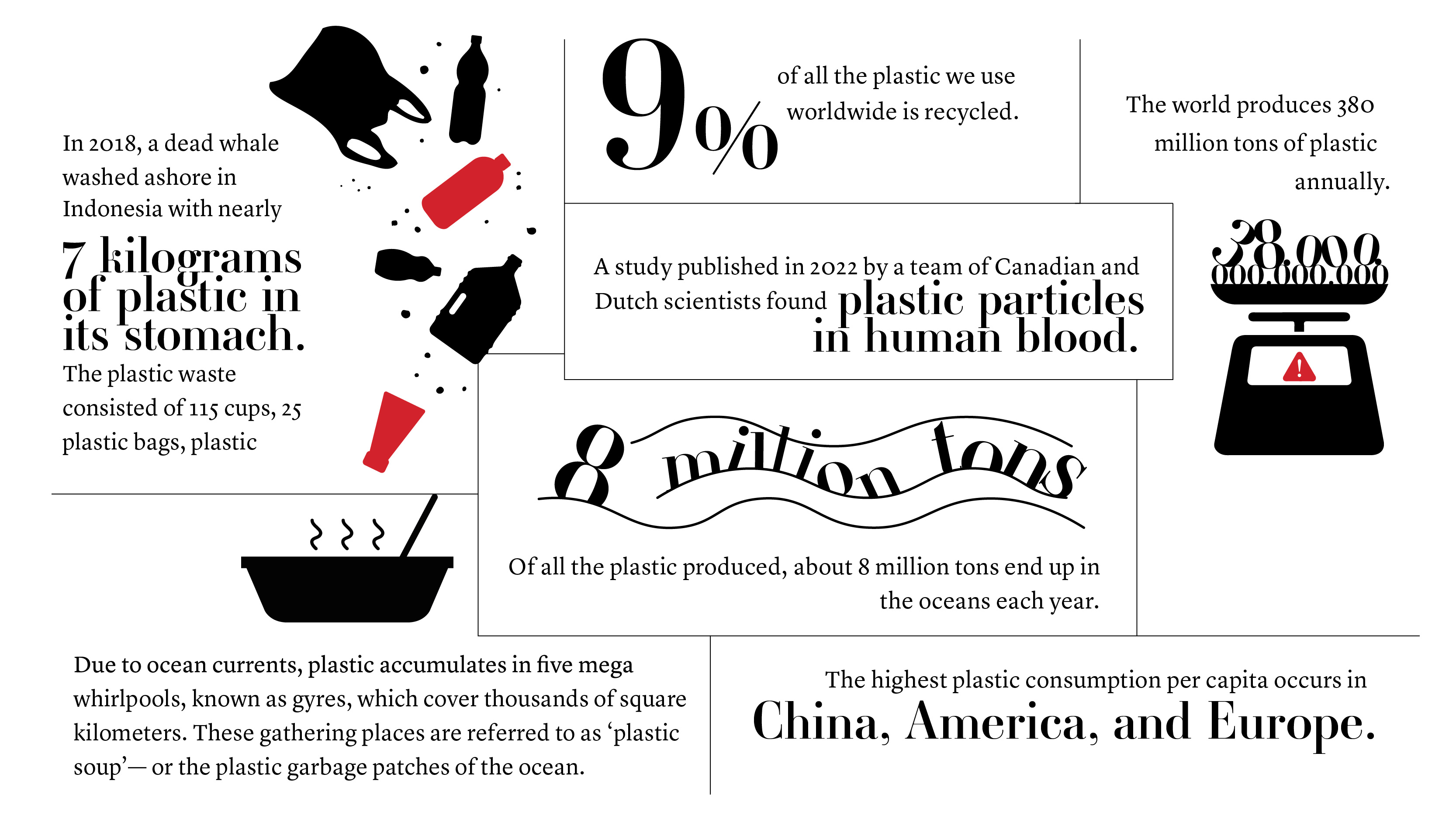
Transition theme 3: Mitigating food waste
One-third of all food produced worldwide ends up getting wasted. This means that for the production of these foods, unnecessary land use, water use, and CO2 emissions take place. As a result, reducing food waste is ranked as the number one solution to climate change. Many companies and employees in the food industry have recognized the importance of waste reduction, but creating long lasting change can be challenging at times. Fortunately, there are now many companies actively involved in helping to monitor and reduce food waste, and upcycle residual streams.
.jpg-28x28.jpg) Written by
Written by 
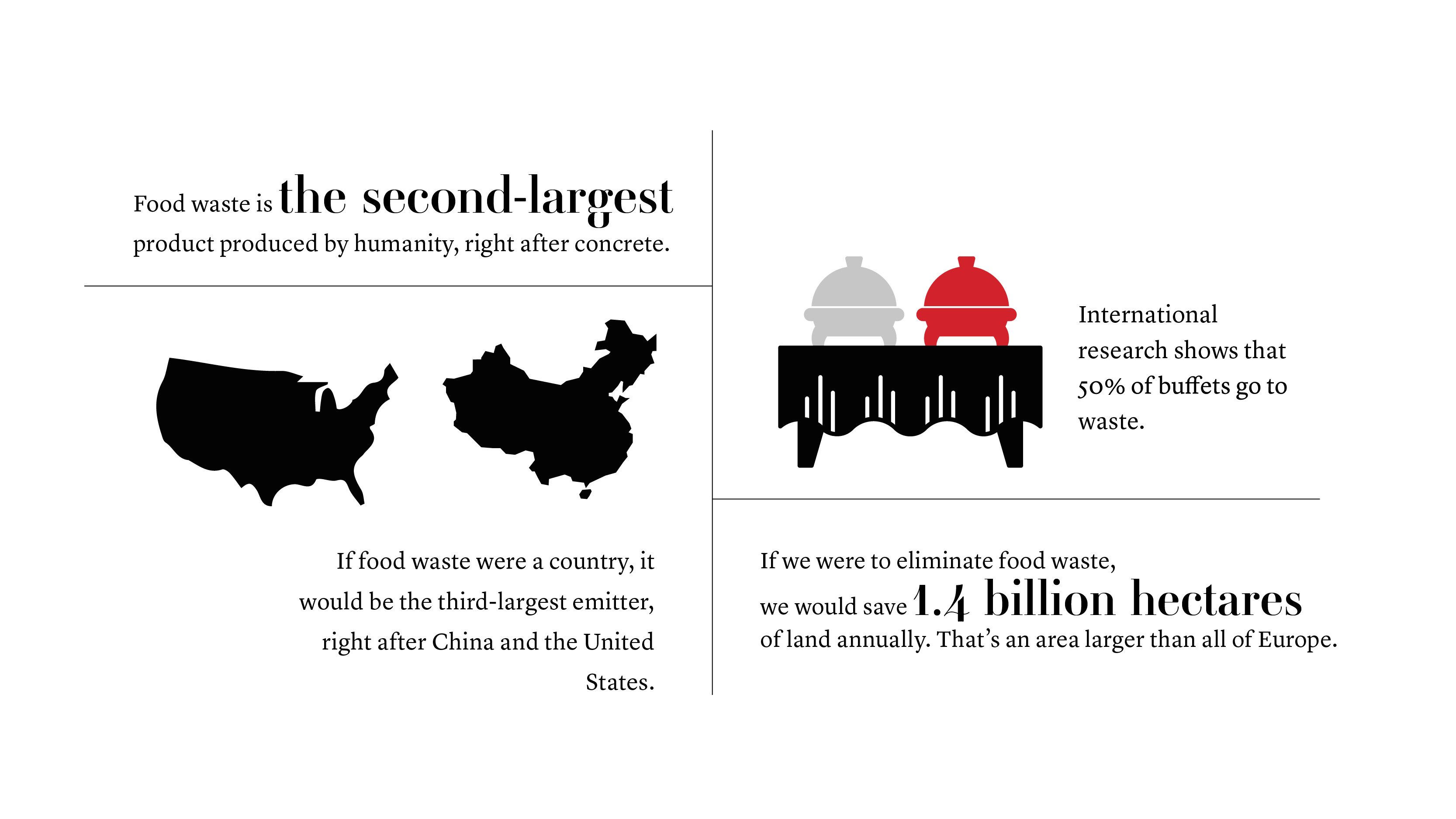
.jpg-300x300.jpg)
.jpg-50x50.jpg)





















